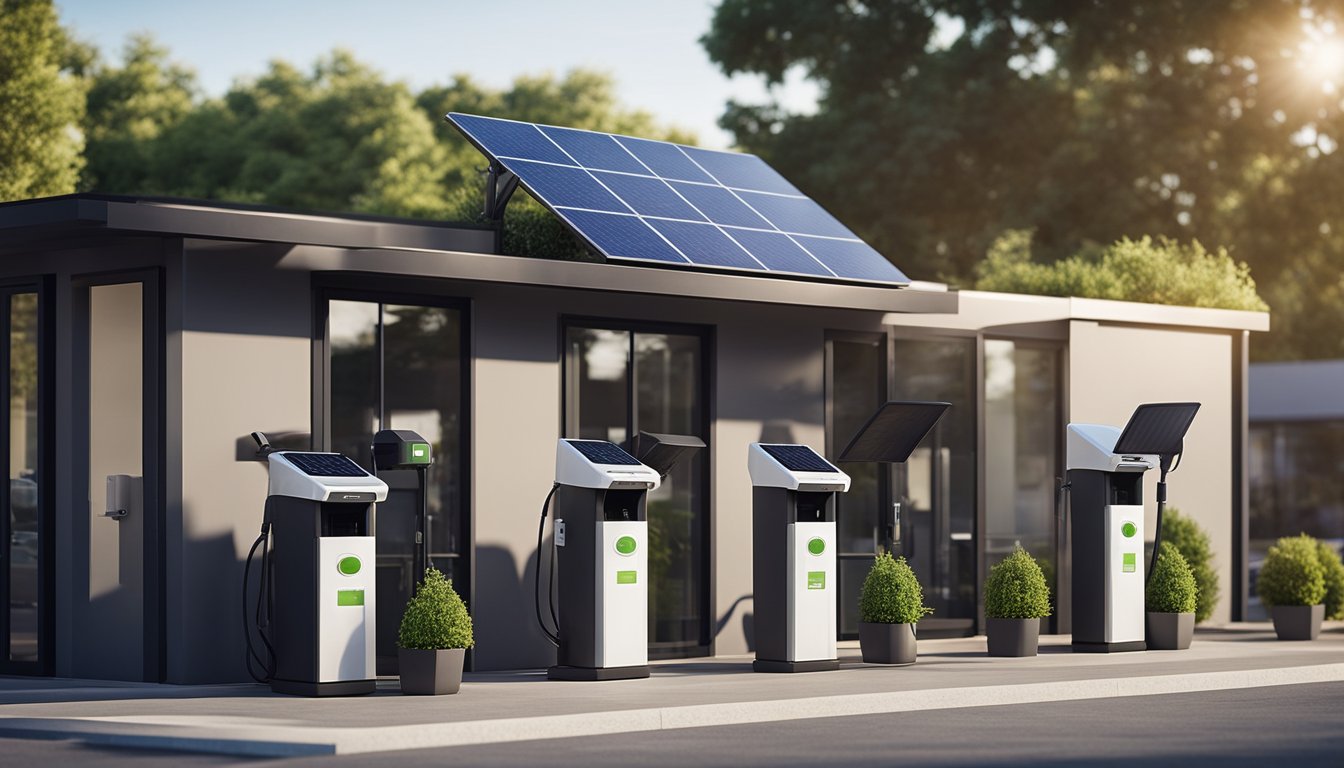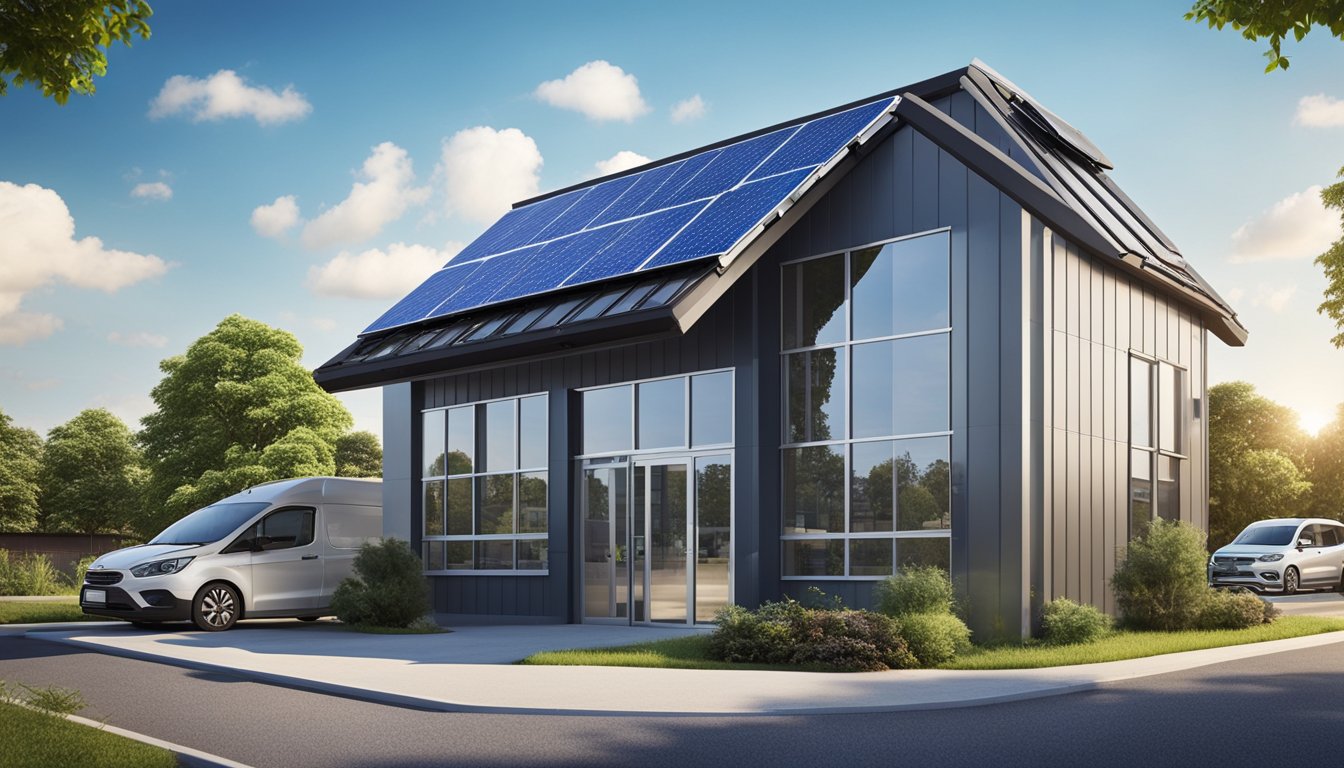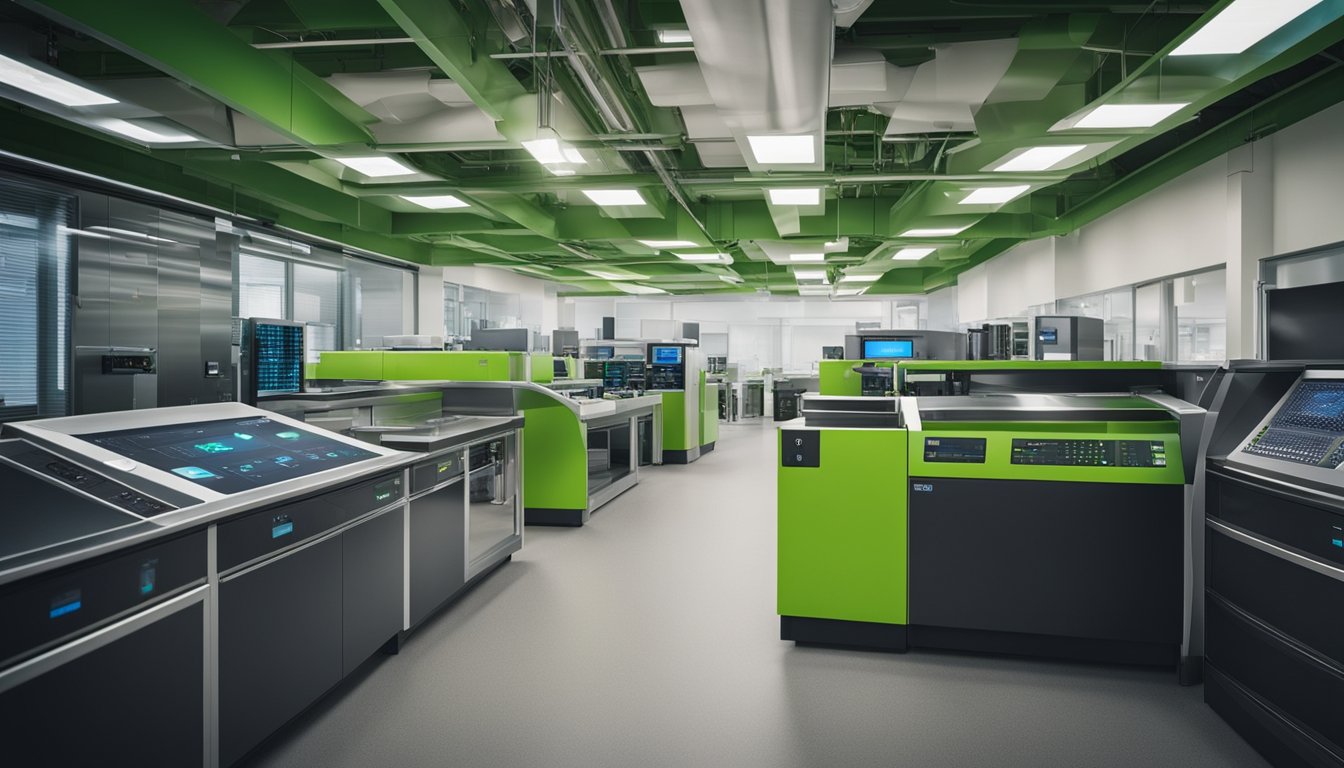Late updated: 03 Aug 2024 16:08
Written by: Amber Collins
Green Technology Trends For UK Small Businesses: Innovations Driving Growth
In today’s rapidly evolving business landscape, green technology isn’t just a trend; it's a necessity. Small businesses in the UK are uniquely positioned to leverage advanced green technologies not only to reduce their environmental impact but also to gain a competitive edge. Investing in renewable energy sources such as solar and wind, adopting energy-efficient practices, and utilising advanced IT solutions for sustainability, can significantly bolster a business’s operational efficiency and market appeal.

The UK’s commitment to a net-zero transition offers countless opportunities for small businesses to innovate and thrive. From harnessing renewable energy to implementing eco-friendly practices, green tech is central to driving sustainable growth. Our small businesses must embrace these technologies to stay ahead of the curve and contribute meaningfully to a greener future.
Sustainable business practices have broader implications beyond just environmental benefits. They can improve brand reputation, enhance customer loyalty, and potentially unlock new revenue streams. In an era where consumers are more conscientious about their environmental footprint, embracing green technology can distinguish us from the competition and foster long-term success.
Key Takeaways
- Embracing green technology can improve efficiency and market appeal.
- The UK’s net-zero transition presents growth opportunities for small businesses.
- Sustainable practices enhance brand reputation and customer loyalty.
Advancements in Green Technologies for Small Businesses

In recent years, several advancements in green technologies have surfaced, each presenting unique opportunities for small businesses in the UK. These innovations span the realms of AI integration, renewable energy resources, and eco-friendly manufacturing processes.
Emergence of AI in Green Tech
Artificial Intelligence has been pivotal in enhancing green technologies. AI optimises energy usage, predicts equipment failures, and ensures efficient resource allocation.
For instance, AI-driven systems can learn from historical data to determine optimal times for equipment operation, reducing unnecessary energy consumption. This not only cuts costs but also lowers the carbon footprint.
Moreover, AI can streamline waste management by predicting waste generation patterns and identifying the best recycling methods. This proactive approach aids in decarbonisation efforts, aligning small businesses with stringent regulatory requirements.
Renewable Energy Innovations
Renewable energy has witnessed significant strides, particularly in wind, solar, and hydrogen technologies. Small businesses can harness these advancements to benefit from cleaner, more sustainable power sources.
Wind turbines and solar photovoltaic panels have become more efficient and affordable. Installing these can drastically reduce reliance on traditional power grids. Small businesses can also benefit from subsidies and grants aimed at promoting renewable infrastructure.
Hydrogen energy is gaining momentum, particularly for its role in creating a zero-emissions ecosystem. With investments in hydrogen technology, businesses can adopt cleaner energy practices, further enhancing sustainability efforts.
Green Manufacturing and Supply Chains
Green manufacturing focuses on minimising environmental impact during the production process. This approach includes using recycled materials, adopting energy-efficient machinery, and implementing eco-friendly packaging solutions.
Supply chain decarbonisation is another critical area for small businesses. By partnering with suppliers committed to reducing their carbon footprint, businesses help create an ecosystem that values sustainability. This also meets growing consumer demand for green products.
Moreover, regulatory frameworks increasingly demand transparency in the manufacturing process, pushing businesses to adopt cleaner practices. Small businesses that embrace these innovations can stay competitive and compliant with evolving regulations.
These advancements don't just promise a greener future; they offer tangible benefits, from cost savings to enhanced brand reputation. Adopting these technologies can pave the way for a more sustainable and successful business landscape.
Sustainability Strategies and Business Impacts

UK small businesses are increasingly adopting sustainability strategies that focus on the circular economy, net zero targets, and green investments. These initiatives are vital for reducing emissions, improving efficiency, and ensuring compliance with regulations.
Circular Economy and Recycling Initiatives
One key strategy is the shift towards a circular economy, which involves rethinking waste and promoting recycling. By reusing materials and creating sustainable products, businesses can reduce their carbon footprint and cut costs.
Businesses are implementing recycling programmes that turn waste into valuable resources. For example, some companies are now remanufacturing products, which not only curtails waste but also lowers the need for raw materials. Incentives such as tax breaks for participating companies further drive this trend.
Moreover, partnerships with recycling facilities ensure that waste is properly managed. The move towards eco-friendly packaging is another aspect, reducing plastic waste and appealing to environmentally-conscious consumers. These initiatives benefit the environment and enhance a company's reputation.
Net Zero Targets and ESG Compliance
Achieving net zero emissions is a pressing goal for many small businesses. Setting clear targets for carbon neutrality is essential for meeting both legal requirements and consumer expectations. To achieve this, businesses are investing in renewable energy sources like solar and wind power.
We see a rise in Environmental, Social, and Governance (ESG) compliance, which requires detailed reporting on sustainability practices. Compliance with ESG standards can attract investors looking for responsible investment opportunities.
Additionally, adopting energy-efficient practices, improving supply chains, and opting for green logistics are crucial steps. These practices not only help in emissions reduction but also can result in substantial cost savings over time, making the business more resilient.
Funding and Investments in Green Projects
Financial support for green projects is critical for small businesses aiming to implement sustainability strategies. Grants, subsidies, and low-interest loans for green initiatives provide essential funding. Many governments and institutions offer such incentives to encourage sustainable practices.
Investment in green technology includes upgrading to energy-efficient machinery, adopting renewable energy sources, and developing sustainable products. Attracting private investors focused on sustainability can provide the necessary capital to fund these projects.
Crowdfunding platforms also play a role, enabling communities to support local green businesses. By leveraging these funding opportunities, small businesses can make significant strides in their sustainability journey, ultimately driving growth and competitive advantage.
Frequently Asked Questions

In the realm of green technology, UK small businesses have ample opportunities to enhance their sustainability and performance. Below, we address common questions about implementing and benefiting from green technology in this sector.
What are the emerging green technologies being adopted by UK small businesses?
UK small businesses are increasingly adopting renewable energy sources such as solar panels and wind turbines. Energy-efficient LED lighting and smart thermostats are also popular.
Additionally, there’s a growing interest in electric vehicle (EV) infrastructure and advanced recycling technologies.
How can UK small businesses implement green technology to enhance sustainability?
To enhance sustainability, UK small businesses should start by conducting energy audits to identify inefficiencies.
Investing in renewable energy solutions and upgrading to energy-efficient equipment are effective steps. Grants and subsidies from the government can aid this transition.
Which green technology products are most suitable for small businesses in the UK?
Solar panels, energy-efficient HVAC systems, and LED lighting are highly suitable.
Water-saving devices and EV charging stations also stand out as practical investments. Cloud computing services help reduce the carbon footprint associated with traditional IT infrastructure.
What is the impact of the green economy on small businesses in the United Kingdom?
The green economy offers financial incentives, including tax benefits and subsidies, for adopting sustainable practices. It also opens new markets for eco-friendly products and services.
By improving energy efficiency, small businesses can reduce operational costs and boost profitability.
Can you list five types of green technology beneficial for small enterprises?
- Solar power systems
- Energy-efficient lighting (LEDs)
- Smart energy management systems
- Electric vehicle charging stations
- Water-saving technologies
How does recycling fit into the green technology strategies of UK small businesses?
Recycling reduces waste and lowers disposal costs.
It complements other green technologies by minimising environmental impact. Implementing recycling programmes and using recycled materials can enhance a business’s sustainability credentials and appeal to eco-conscious consumers.
